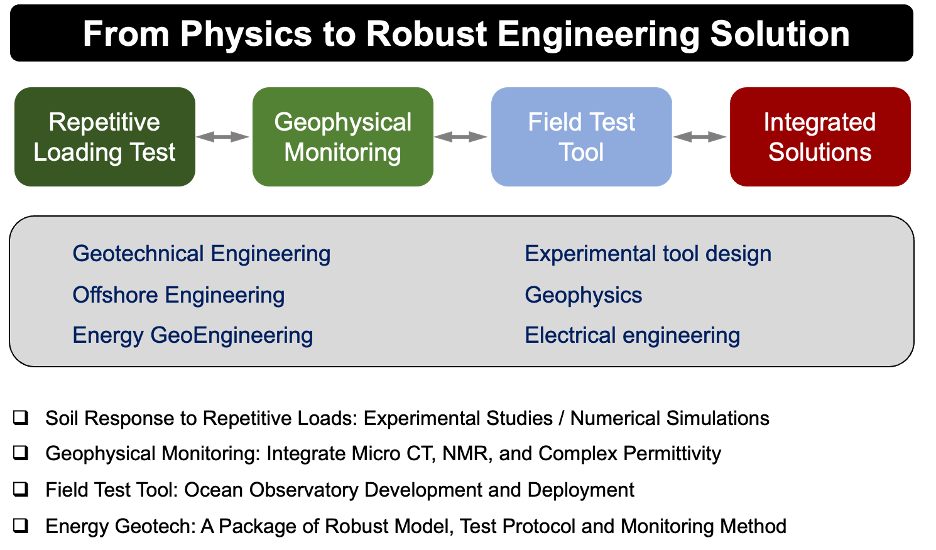Researcher
Office: 437 Davis Hall
Email: wonjun.cha ‘at’ berkeley ‘dot’ edu
My name is Won-jun Cha and I am a postdoc at the University of California Berkeley. I am currently an instructor of an undergraduate class and assist the course content development. On the other hand, I am developing measurement protocols and the implementation of sensors for mobile robots for geotechnical applications.
My Ph.D. primarily focused on the long-term response of geosystems subjected to repetitive mechanical and environmental loads. Repetitive loads affect the long-term performance of all geosystems, including pumped hydro-storage, monopile-supported wind turbines, compressed-air energy storage, and energy piles. Furthermore, seasonal temperature and water level change and freezing-thawing lead to a cumulative settlement, which has implications on pile-soil interfaces, slope stability, silo design, aquifer storage, and compressed air energy storage.
I have been involved in five collaborations which are related to bio-inspired geotechnical engineering (biopolymer), soft ground improvement (sand-column and fine-migrations), frozen ground engineering (freeze-thaw cycles), construction material engineering (foam cement development), and geophysical monitoring (polarization and NMR relaxation in wideband frequency domain). All experimental study builds on my own design tools and test protocol, including “temperature-controlled triaxial cells,” “multi-physics oedometer cell,” and “In-situ NMR pressure-controlled sediment drying cell.” Various geophysical monitoring methods (X-ray micro-CT, NMR, S-wave, and EM-waves) and simulations using discrete element modeling complement my experimental works.They have also guided me in developing cutting-edge test devices and instrumentation to explore new engineering demands and design considerations associated with emerging energy and environmental issues.
My research goals will involve four themes:
- Energy-geosystems. Long-term effects of hydro-chemo-thermo-mechanically coupled repetitive loads on energy-geosystems from experimental studies to modeling.
- Experimental methods in research. Innovative test techniques at various scales, with applications to geomaterial characterization and monitoring of emerging phenomena.
- Geophysical monitoring with robots. Implementing versatile geophysical monitoring tools to the mobile robot for a geotechnical survey.
- Geotechnical applications in planetary exploration. Develop simple and robust geotechnical survey tools for planetary exploration.
Representative Research Background
Field Works


